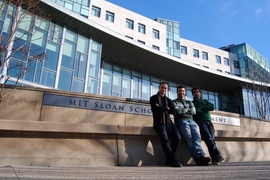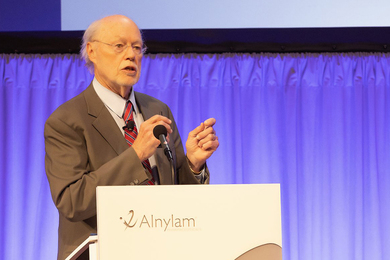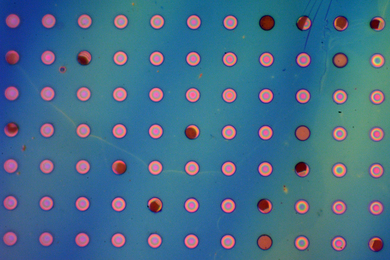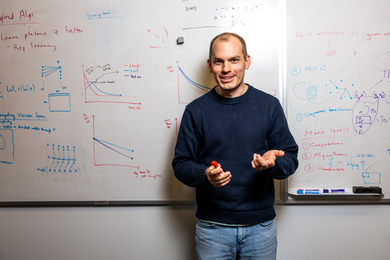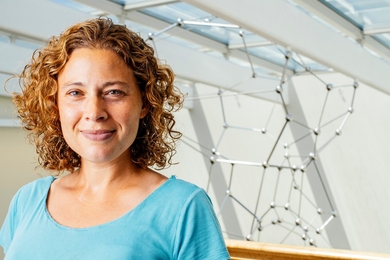Buildings are the largest energy consumers worldwide, so it seems the sector is ripe for energy investment and savings potential. In order to reduce buildings’ energy impact, strategies have been developed to help owners and tenants use technology more efficiently. Yet these strategies vary from residential or commercial buildings — which combined make up more than 30 percent of final energy consumption across European Union member states.
This is the scope for Henrique Pombeiro’s PhD thesis for the MIT Portugal Sustainable Energy Systems program. For this research, Pombeiro has been awarded a Fulbright Research Grant that will allow him to continue his studies at MIT on how to improve energy efficiency in buildings.
The main objective of Pombeiro’s research — being conducted in association with KIC InnoEnergy — is to develop strategies that help users reduce energy consumption without losing comfort, with a focus on examining residential structures and a university building.
For his research, Pombeiro has been developing models to describe how energy is consumed in buildings, using "neuro-fuzzy" systems — a type of artificial intelligence that combines artificial neural networks and computational fuzzy logic — and optimization algorithms that can control a building's fans and illumination in different spaces. Two case studies have stemmed from his research: one looking at up to 1,000 households; the other focusing on the Instituto Superior Técnico in Portugal.
At MIT, Pombeiro will be engaged in a new project, SusCity, which aims at developing energy efficiency strategies in neighborhoods, taking into account material inputs and outputs (called "urban metabolism"). Under the supervision of Leon Glicksman, a professor of building technology and mechanical engineering, he aims to develop a framework for evaluating the effectiveness of different strategies in encouraging users to adopt more efficient behaviors, where socioeconomic factors may play a major role.
SusCity is an MIT Portugal joint project between Portugal and MIT, and is supported by the Portuguese Fundação para a Ciência e Tecnologia. The project is focused on developing and integrating new tools and services that increase urban resource efficiency, minimize environmental impact, preserve system reliability, and contribute to economic development. Partners of the project are MIT, four Portuguese universities, one associated laboratory, and one national laboratory, as well as a wide variety of other private and public institutions.
Pombeiro also participates in other energy conservation activities. As co-president of the MIT Portugal Energy Club, which was inspired by the MIT Energy Club, he will be involved in activities that seek synergies between the clubs. In addition, Pombeiro is contributing to the development of Watt-IS, a spinoff from the MIT Portugal Program that promotes energy efficiency to consumers. He has also developed data analysis and processing algorithms and helped in the management of the company.



